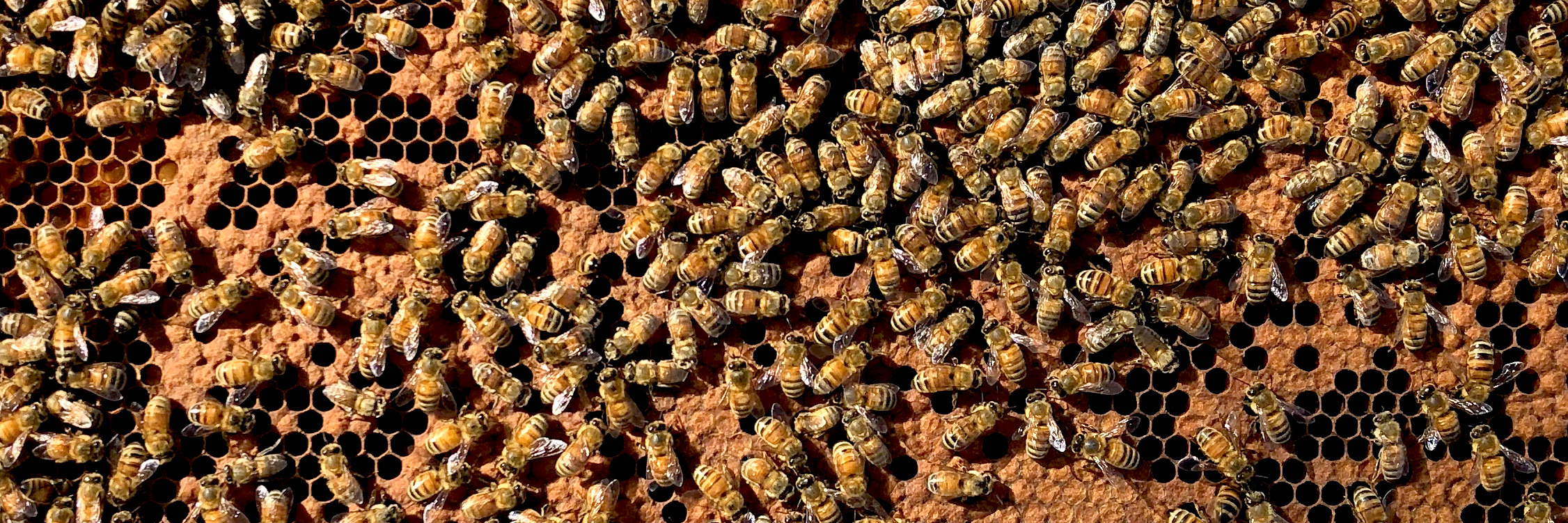2025/26 Winter Capped Honey Bee Brood Monitoring Program
The status of capped brood in honey bee colonies during winter is critical information beekeepers must consider when choosing an appropriate control product for the mite Varroa destructor. As colonies emerge from winter, insight into colony brood rearing also helps beekeepers plan for early spring management, such as feeding and swarm control.
Although colonies located in many parts of the United States experience predictable extended periods without brood, this may not be the case for those in coastal and southern regions with mild winters.
To help beekeepers make appropriate management decisions during winter and early spring, 17 land-grant universities, 1 statewide cooperative extension system, 5 USDA ARS labs (Baton Rouge, Beltsville, Poplarville, Stoneville, Tucson), and 3 beekeepers are jointly monitoring amount of capped brood in their colonies throughout the country from mid-October 2025 to the end of February 2026.
This page will be updated approximately every 2 weeks so that amount of capped brood in the monitored colonies can be communicated to the beekeeping community.
Biweekly Static Maps
Each blue point on a map below represents the average amount of capped brood among all monitored colonies at a particular location, as expressed as deep frame equivalents. One deep frame equivalent represents 100% coverage of capped brood on both sides of the frame.
Week of January 27, 2026
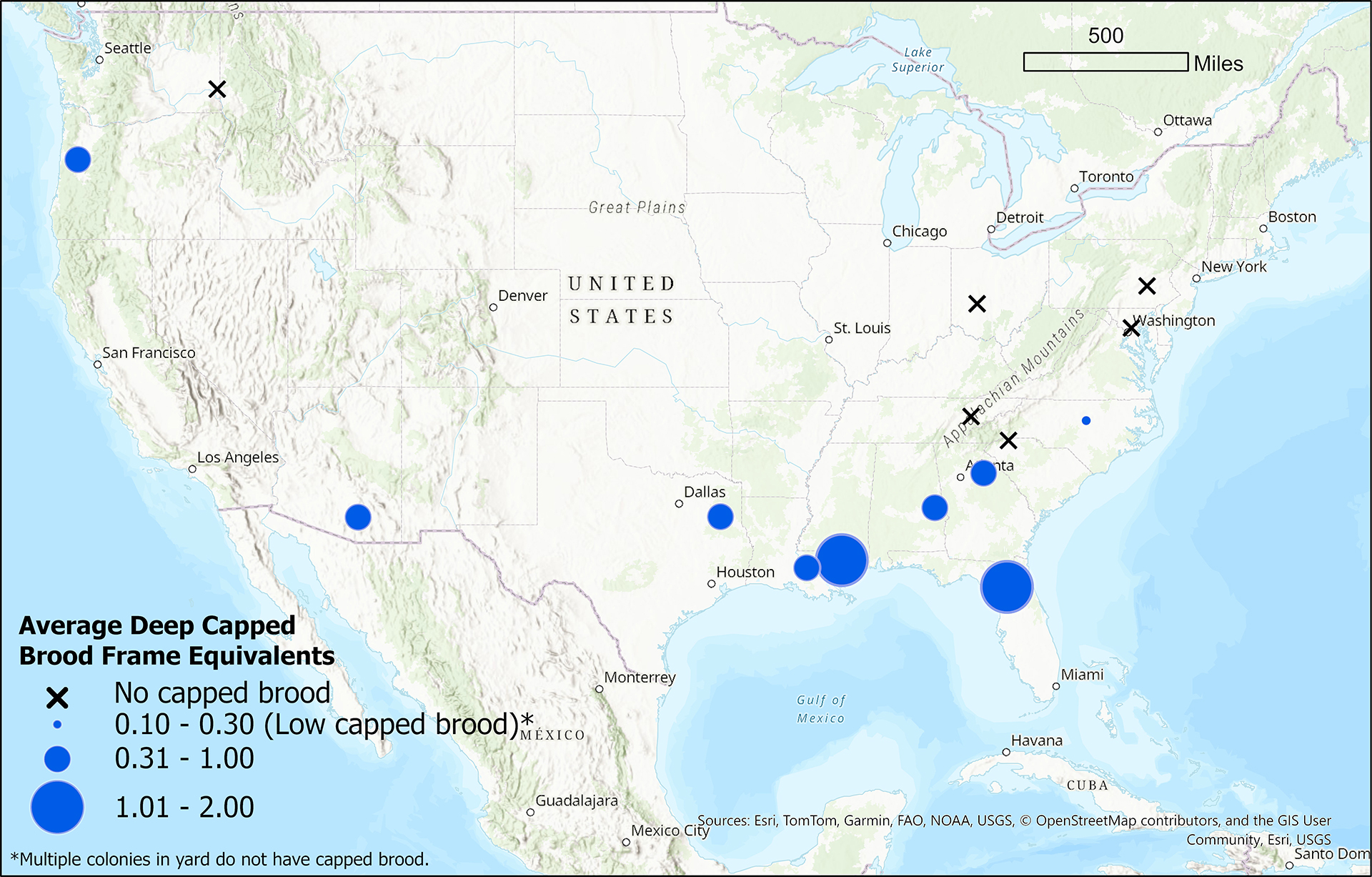
Week of January 13, 2026
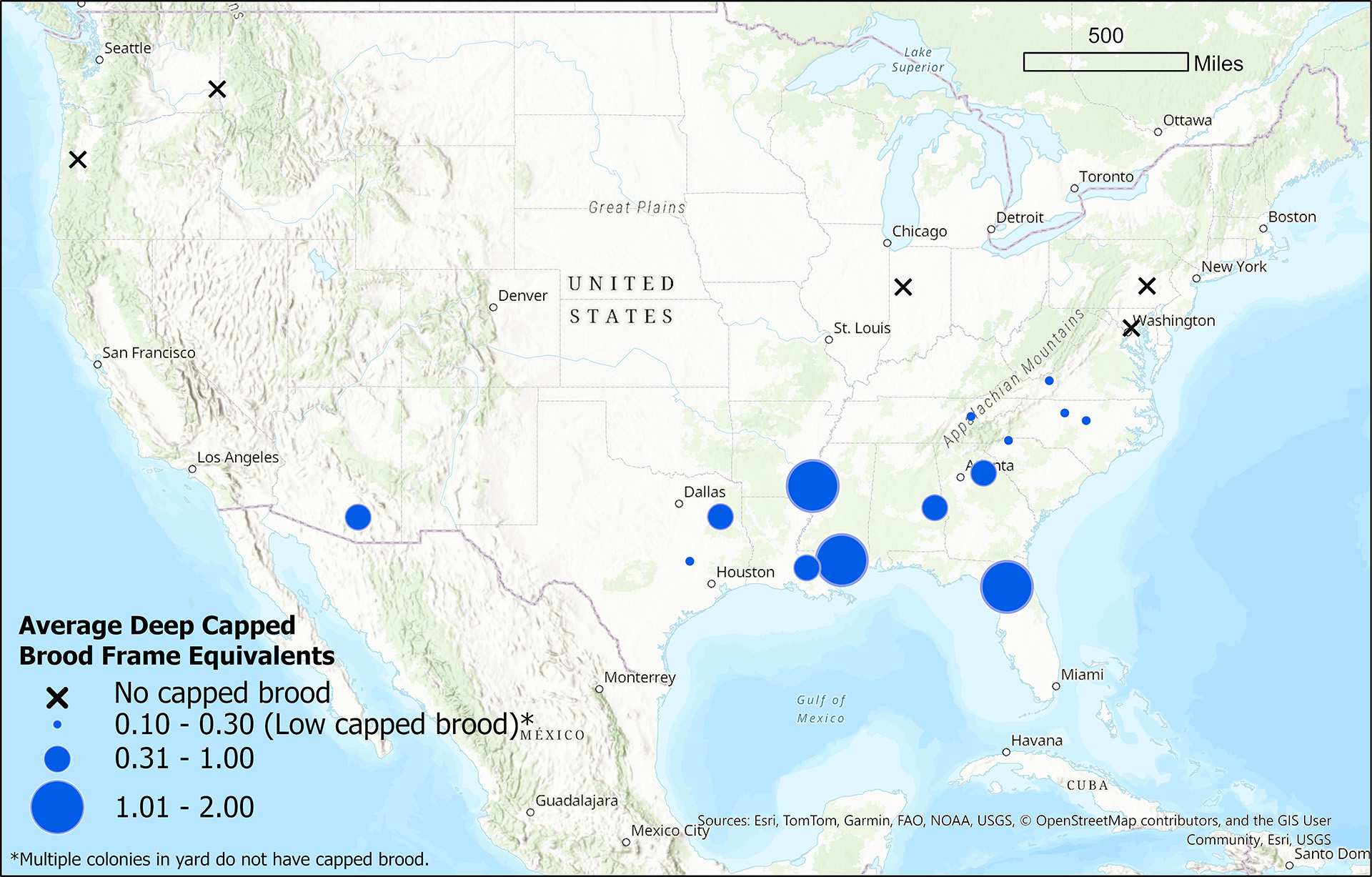
Week of December 31, 2025
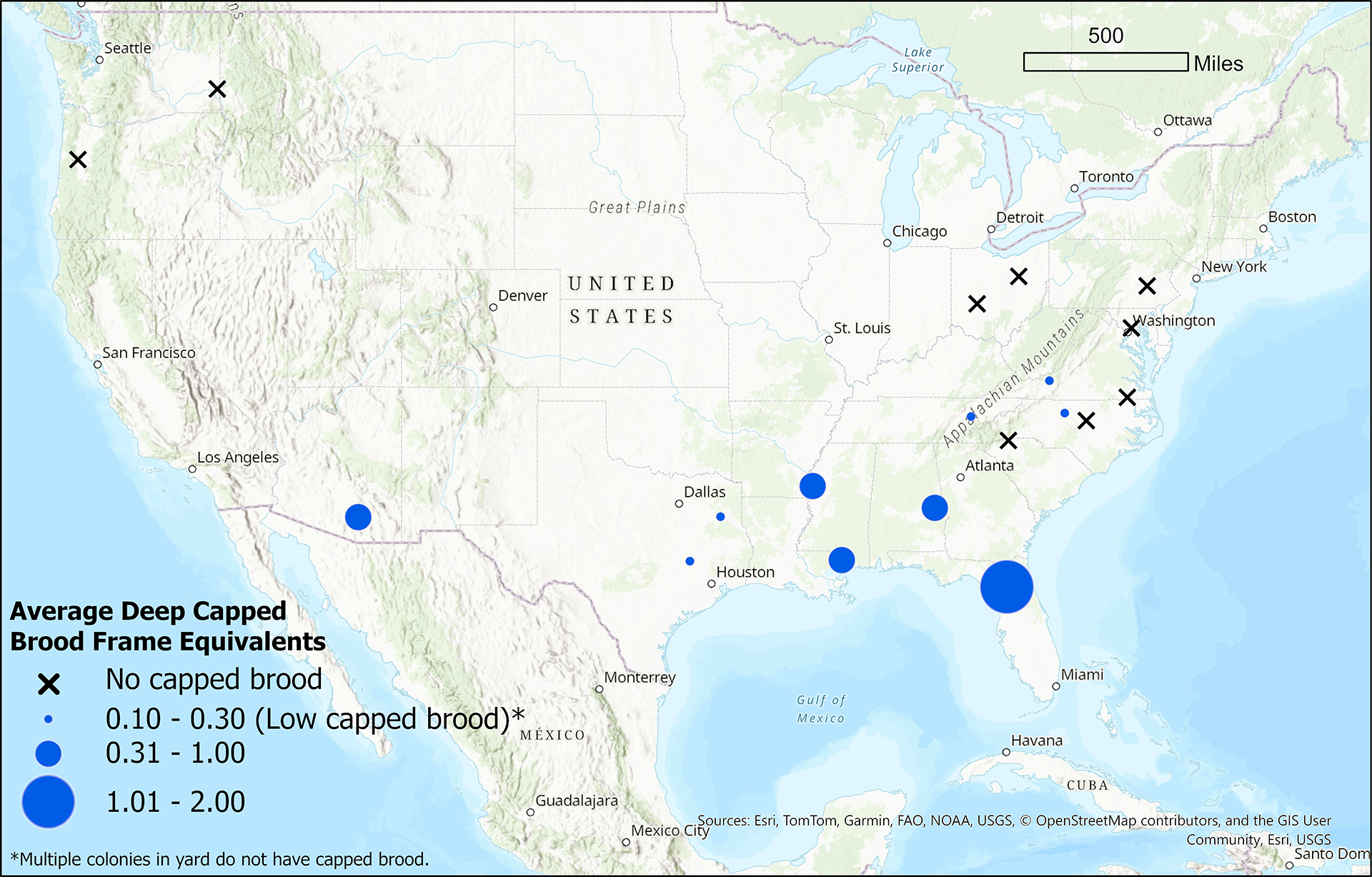
Week of December 17, 2025
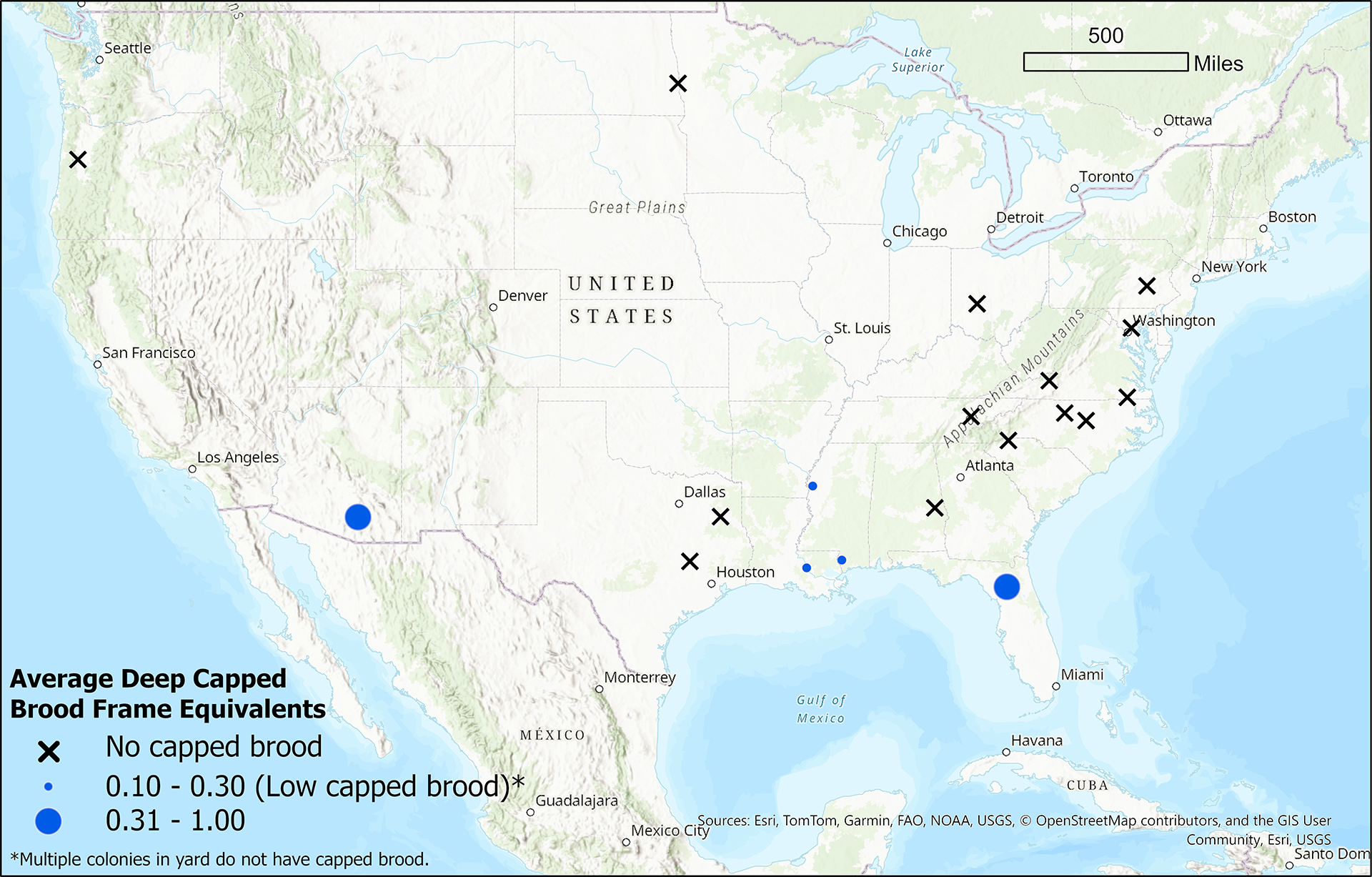
Week of December 3, 2025
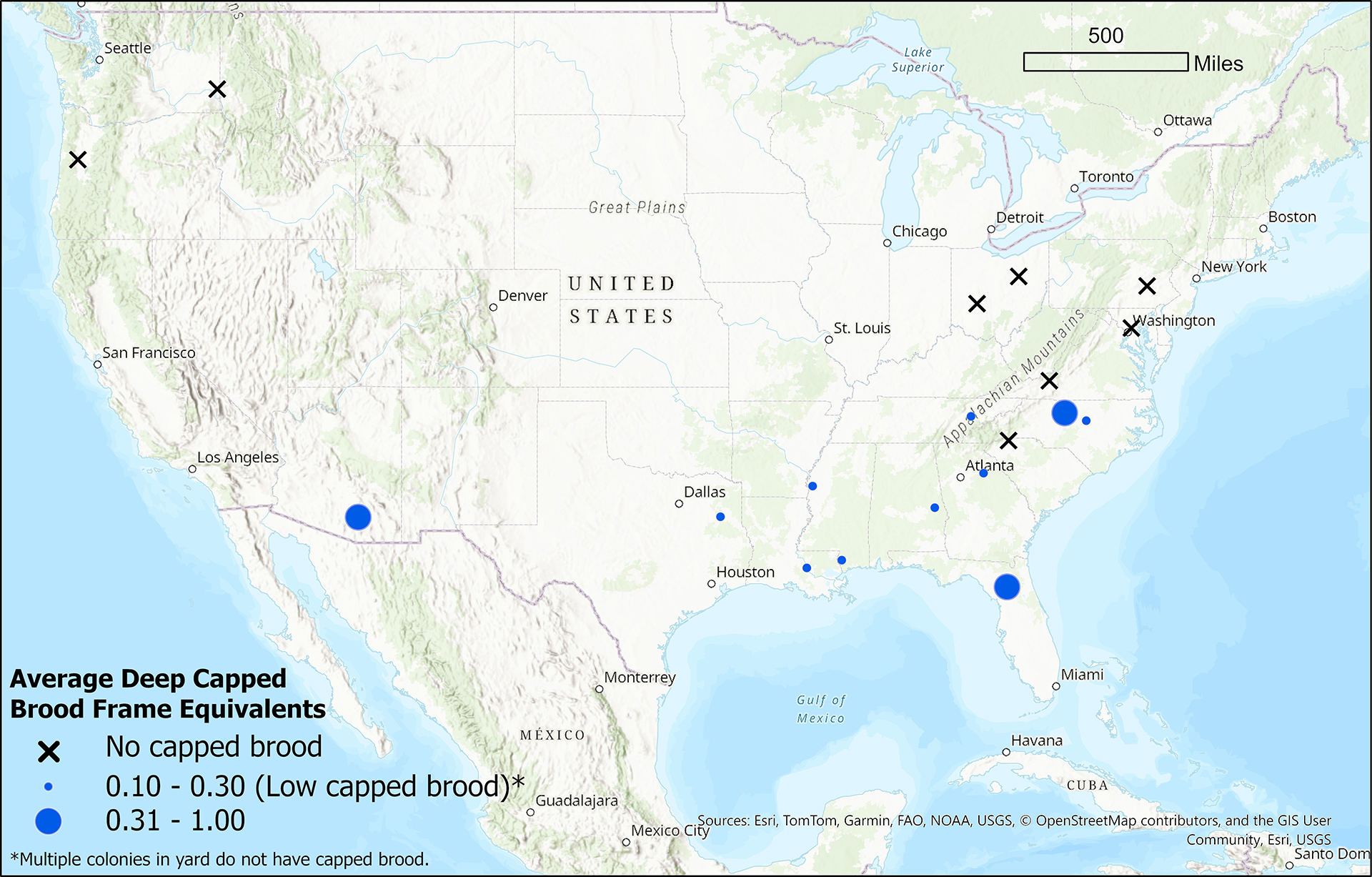
Week of November 19, 2025
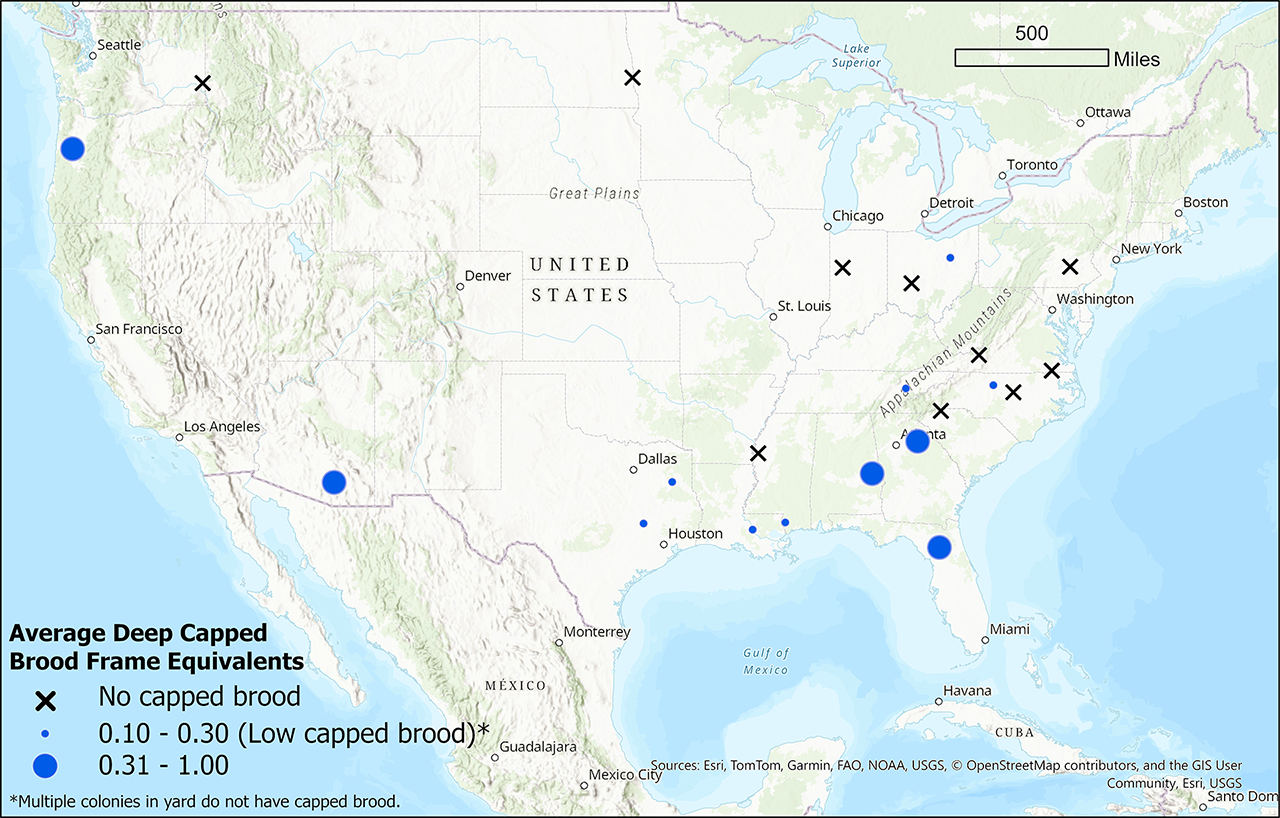
Week of November 5, 2025
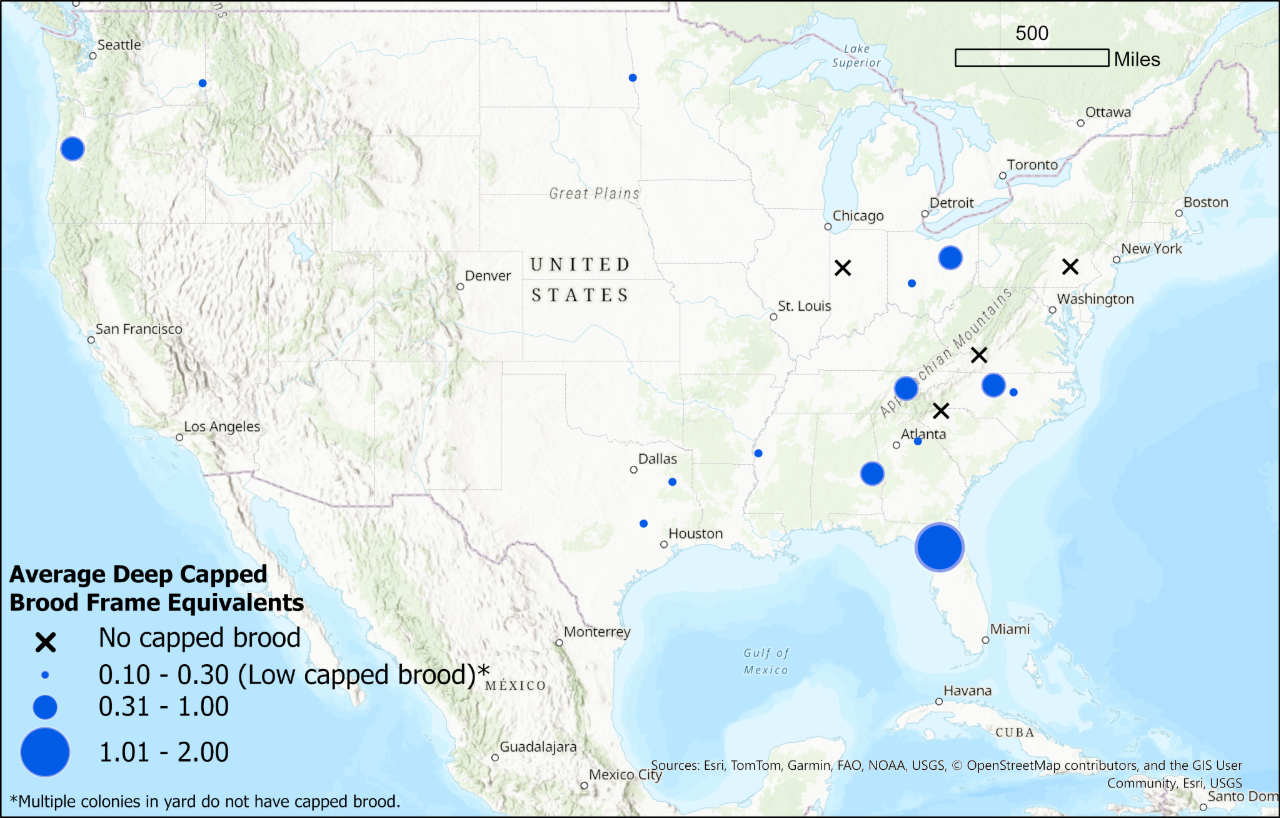
Week of October 22, 2025
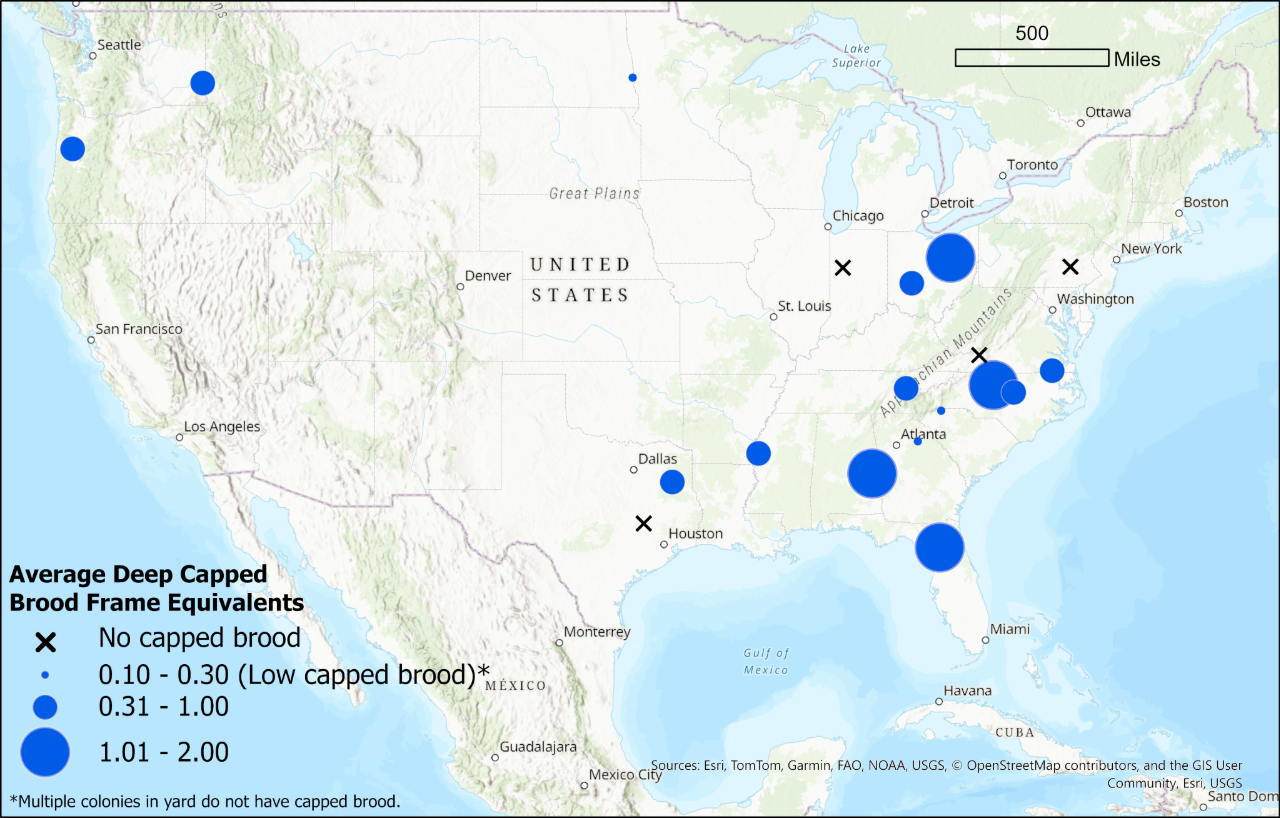
Collaborators
- Alabama Extension Beekeeping Team
- Auburn University Bee Lab
- Auburn University GeoIDEA Lab
- Central State University
- Cornell University
- Enterprise State Community College
- University of Florida
- University of Georgia
- Mississippi State University (Amiri)
- North Carolina State University
- Oregon State University
- Penn State University
- University of Tennessee
- Texas A&M University (Rangel)
- Texas A&M University (Slater)
- Ohio State University
- University of North Carolina Greensboro
- North Dakota State University
- Purdue University
- Virginia Tech University
- Washington State Universtiy
- USDA ARS Baton Rouge
- USDA ARS Beltsville
- USDA ARS Poplarville
- USDA ARS Stoneville
- USDA ARS Tucson
- Beekeeper Bill Elliott
- Beekeeper Kristine Smith
- Beekeeper Mark Sweatman
This work is being supported through funding from the Southern IPM Center 2022-70006-38002, the USDA ARS Cooperative Agreement 58-6066-3-029, the USDA National Institute of Food and Agriculture 2022-70006-38002, and the USDA National Food Institute of Food and Agriculture Hatch Multi-state Project NC1173.
Research
Teaching
Team
Publications
Honey & Sales
Donate to AU-Bees
Contact
Associate Professor
301 Funchess Hall
Auburn, AL 36849
334-844-5068
williams@auburn.edu
Ben DeMoras
Ph.D. Student
952 Bee Lab Road
Auburn, AL 36849
bxd0001@auburn.edu

